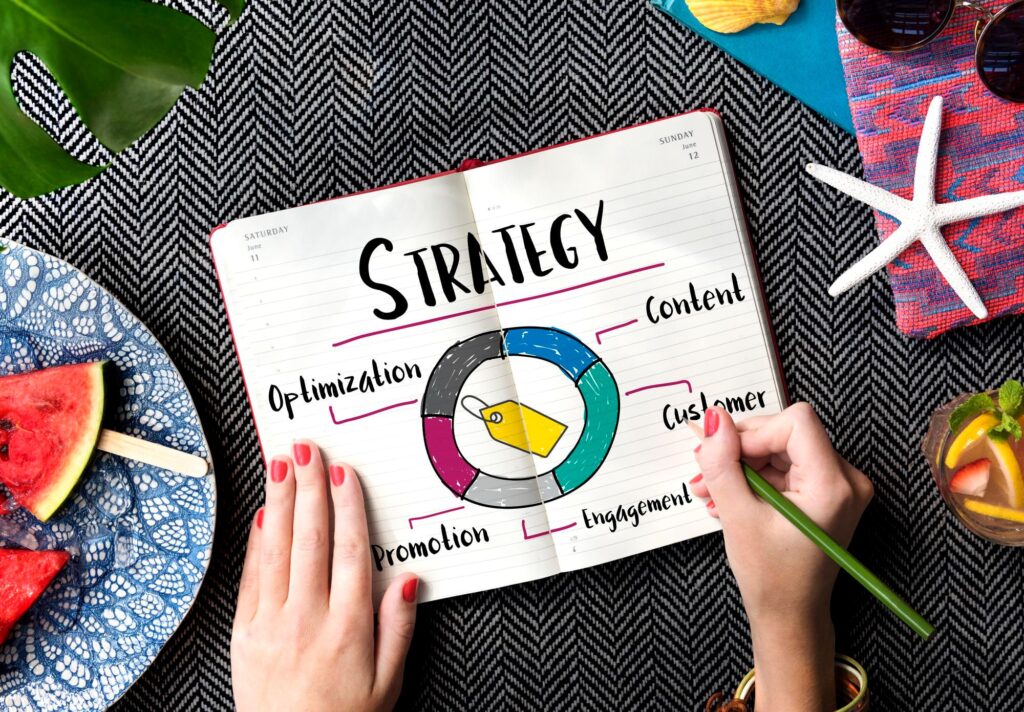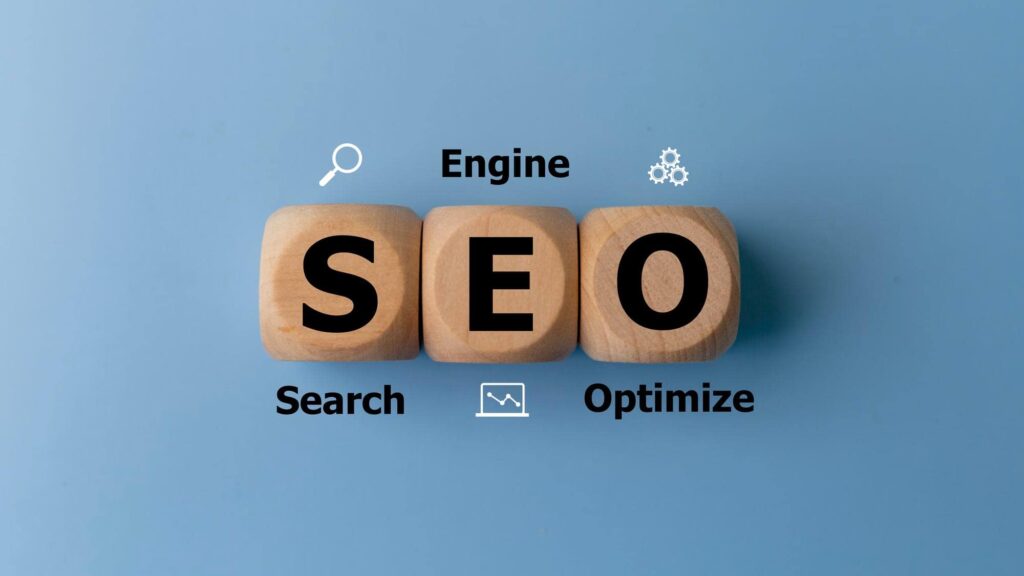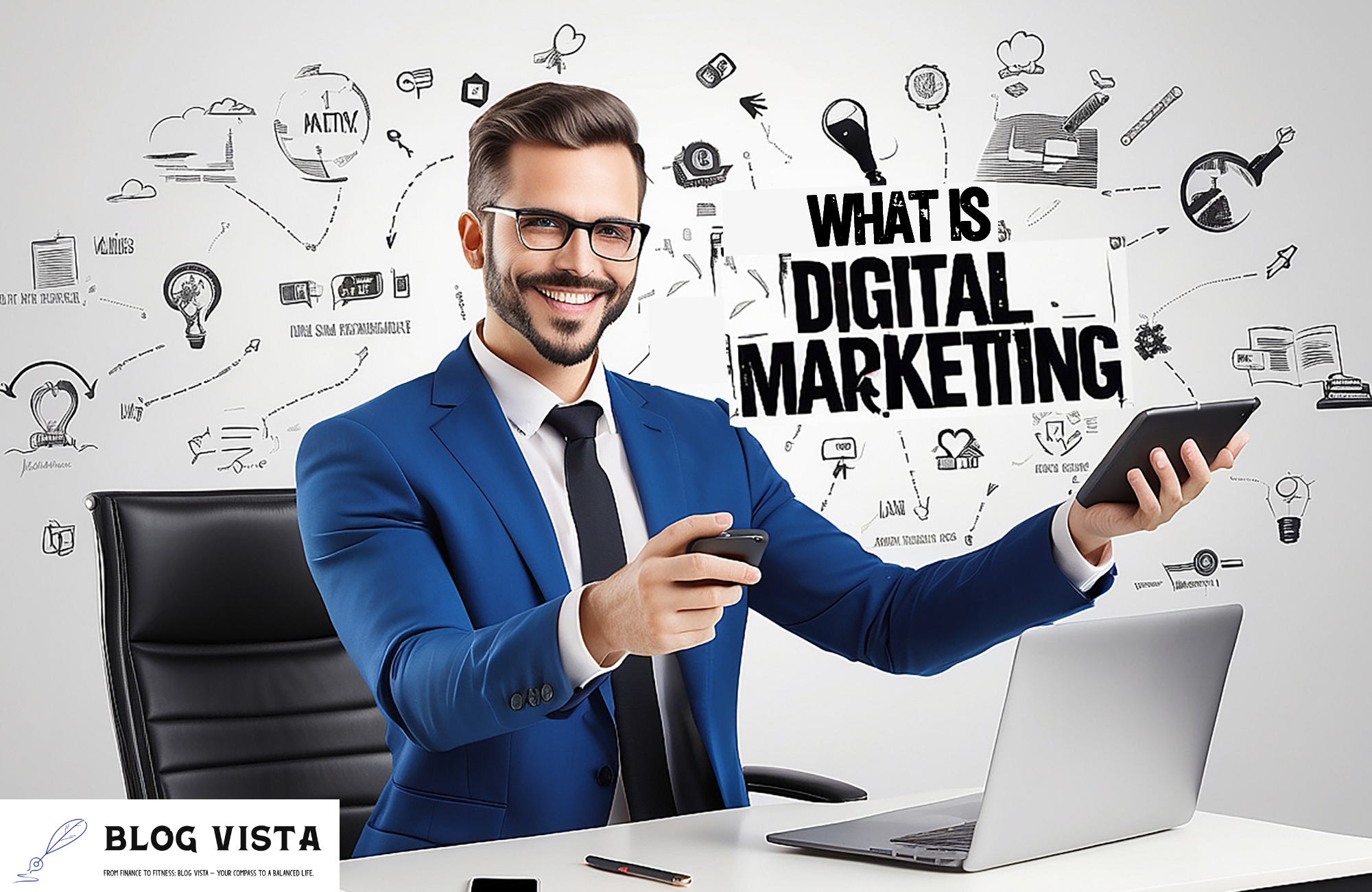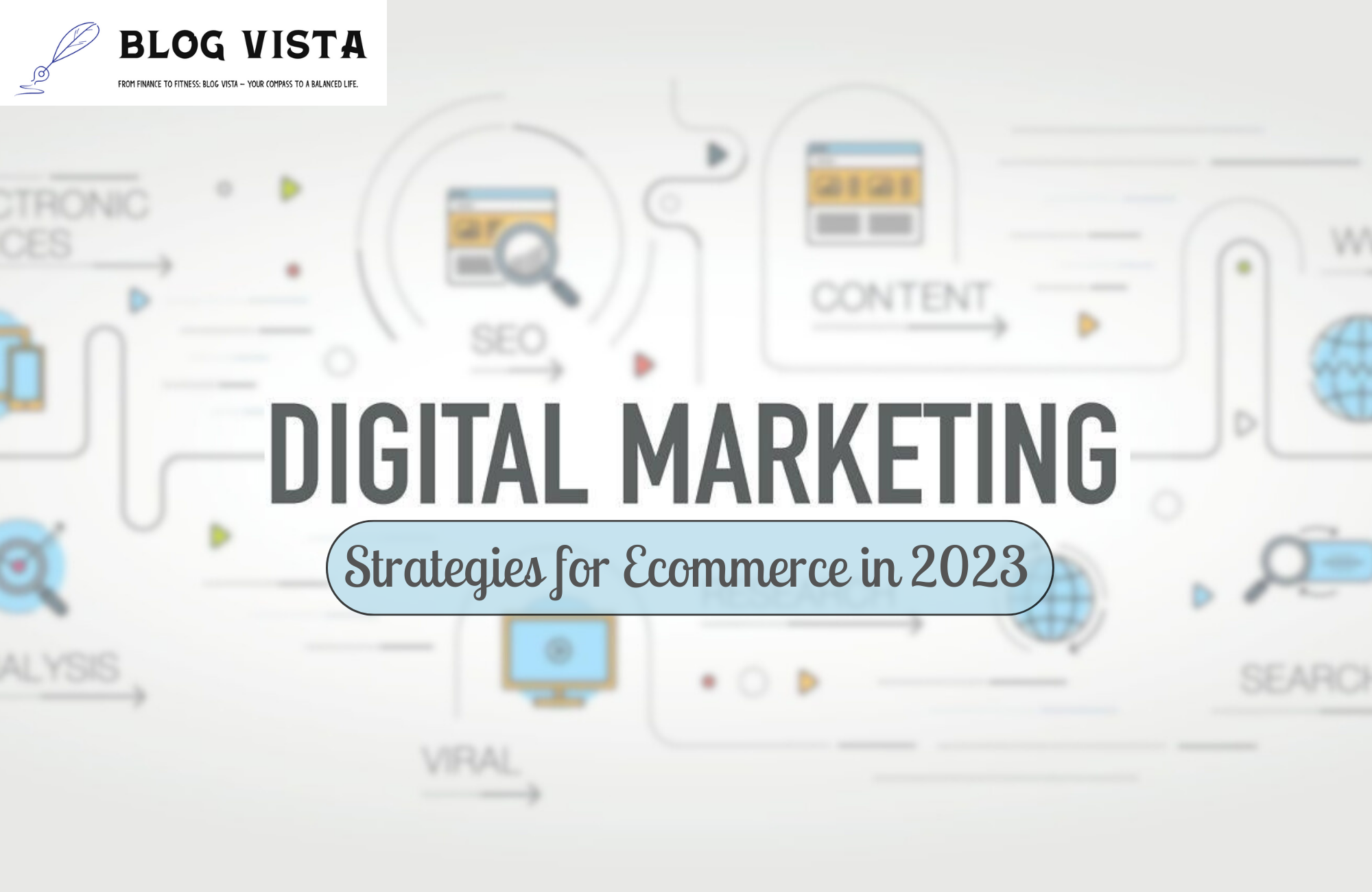In today’s digital age, understanding what is digital marketing and implementing its strategies is essential for any business looking to thrive online. With the internet becoming an integral part of consumers’ daily lives, the opportunity to reach a wider audience and connect with potential customers has never been greater. This comprehensive guide aims to delve into the essence of digital marketing, offering insights and strategies to help you maximize your online presence and drive substantial business growth.
The Essence of Digital Marketing

Digital marketing encompasses all marketing efforts that use the internet and electronic devices, allowing businesses to connect with their target audience in real-time. This modern marketing approach leverages various digital channels, including search engines, social media, email, and websites, to reach potential customers. Unlike traditional marketing methods, digital marketing offers precision targeting and the flexibility to adjust strategies based on real-time data and analytics.
The Importance of Digital Marketing
The global digital landscape has transformed the way businesses interact with their customers. With over 5 billion internet users worldwide, the potential for businesses to expand their reach and engage with a broader audience is immense. Digital marketing is not just about promoting products or services; it’s about creating meaningful connections, building brand awareness, and establishing trust with your audience. It offers a cost-effective way to generate leads, increase sales, and achieve a competitive edge in the digital space.
Core Strategies of Digital Marketing
Digital marketing comprises various strategies, each serving a specific purpose in the overall marketing plan. Here’s an overview of the key digital marketing strategies:
- Search Engine Optimization (SEO): SEO involves optimizing your website to rank higher in search engine results pages (SERPs), making it more visible to those searching for keywords related to your products or services.
- Content Marketing: This strategy focuses on creating and distributing valuable, relevant, and consistent content to attract and engage a clearly defined audience, with the objective of driving profitable customer action.
- Social Media Marketing: Utilizing social media platforms to promote your brand, products, or services, this strategy aims to foster engagement and interaction with a wider audience.
- Pay-Per-Click (PPC): PPC is an online advertising model where advertisers pay each time a user clicks on one of their ads. It’s an effective way to drive traffic to your website and generate leads.
- Email Marketing: By sending personalized, targeted emails to your audience, email marketing helps you inform, engage, and encourage recipients to take specific actions, such as making a purchase.
- Affiliate Marketing: A performance-based advertising strategy where businesses reward affiliates for generating traffic or leads to the company’s products or services.
Crafting a Successful Digital Marketing Strategy

To harness the full potential of digital marketing, it’s crucial to develop a well-thought-out strategy that aligns with your business goals. Here’s how to get started:
1. Define Your Objectives
Clearly define what you aim to achieve with your digital marketing efforts. Whether it’s increasing brand awareness, boosting sales, or enhancing customer engagement, having clear objectives will guide your strategy and help measure success.
2. Know Your Audience
Understanding your target audience is the foundation of effective digital marketing. Create detailed buyer personas to gain insights into their needs, preferences, behaviors, and pain points. This will enable you to tailor your marketing messages and choose the right channels to reach them.
3. Select the Right Channels
Not all digital marketing channels will be relevant to your business. Choose the channels where your target audience is most active and engaged. For example, if your audience primarily consists of professionals, LinkedIn might be more suitable than Instagram.
4. Create Compelling Content
Content is at the heart of digital marketing. Develop content that resonates with your audience, provides value, and encourages engagement. This could be in the form of blog posts, videos, infographics, or social media posts.
5. Optimize for SEO

Ensure your content is discoverable by optimizing it for SEO. Use relevant keywords, meta tags, and high-quality backlinks to improve your visibility in search engine results.
Also read 10 E-Commerce SEO Tips To Boost Your Sales for more information.
6. Utilize Social Media
Social media platforms offer a powerful way to connect with your audience, share content, and build relationships. Maintain an active presence on the platforms that matter to your audience and engage with them regularly.
7. Leverage Analytics
Use analytics tools to track the performance of your digital marketing campaigns. Analyze data to understand what’s working and what isn’t, and adjust your strategy accordingly to maximize effectiveness.
Leveraging Digital Marketing Trends
To stay ahead in the digital marketing realm, it’s crucial to keep abreast of the latest trends and technologies. Incorporating these trends can significantly enhance your marketing strategy:
- Artificial Intelligence and Machine Learning: AI and machine learning are revolutionizing digital marketing, offering personalized customer experiences, predictive analytics, and automation of routine tasks. Leveraging AI can help in understanding consumer behavior and preferences, enabling marketers to tailor their strategies for better engagement.
- Voice Search Optimization: With the rise of virtual assistants like Siri, Alexa, and Google Assistant, optimizing for voice search has become essential. Voice search optimization involves creating content that answers questions directly and conversationally, catering to the growing number of voice search queries.
- Video Marketing: Video content continues to dominate the digital space, offering engaging and easily digestible content to users. From live streams on social media to explainer videos on websites, incorporating video into your digital marketing strategy can significantly boost engagement and conversions.
- Influencer Marketing: Collaborating with influencers can amplify your brand’s reach and credibility. Influencer partnerships allow businesses to tap into the influencer’s audience, leveraging their trust and authority to promote products or services authentically.
Adapting to the Changing Digital Landscape

The digital landscape is continually evolving, driven by changes in consumer behavior, technological advancements, and emerging platforms. To maintain a competitive edge, businesses must be agile and willing to adapt their digital marketing strategies. This means regularly reviewing and updating your strategies based on performance metrics, staying informed about industry trends, and being open to experimenting with new platforms and technologies.
Measuring Digital Marketing Success
One of the key benefits of digital marketing is the ability to measure the success of your campaigns with precision. Key performance indicators (KPIs) such as website traffic, conversion rates, click-through rates (CTRs), engagement rates, and return on investment (ROI) provide valuable insights into how well your marketing efforts are performing. Regularly monitoring these metrics allows for data-driven decision-making, ensuring that your digital marketing strategy remains aligned with your business objectives and delivers optimal results.
Conclusion
Digital marketing opens up a world of opportunities for businesses willing to invest time and resources into online growth. By understanding and implementing the core strategies of digital marketing, you can significantly enhance your online presence, engage with your target audience on a deeper level, and drive business success in the digital era.
Remember, the digital landscape is constantly evolving, so staying updated with the latest trends and technologies is crucial to keeping your digital marketing strategy fresh and effective. Embrace the power of digital marketing today and unlock the potential to transform your business’s online trajectory. Follow Blog Vista for more such blogs.
Frequently Asked Questions
Digital marketing uses internet-based channels and devices to promote products and services, helping businesses reach a wider audience and track results in real-time.
It enables precise targeting, real-time engagement, and data-driven strategy adjustments, which enhance reach, lead generation, and sales.
Key strategies include SEO, Content Marketing, Social Media Marketing, PPC Advertising, Email Marketing, and Affiliate Marketing.
SEO improves your website's visibility on search engines, attracting more organic traffic and potential customers.
Content marketing builds trust and authority by providing valuable information, driving customer engagement and profitable actions.
It boosts brand visibility, fosters direct engagement with your audience, and builds a loyal community.
PPC is an advertising model where you pay for each click on your ad, driving targeted traffic to your website quickly.
Use KPIs like website traffic, conversion rates, click-through rates, engagement rates, and ROI to track and optimize your campaigns.



